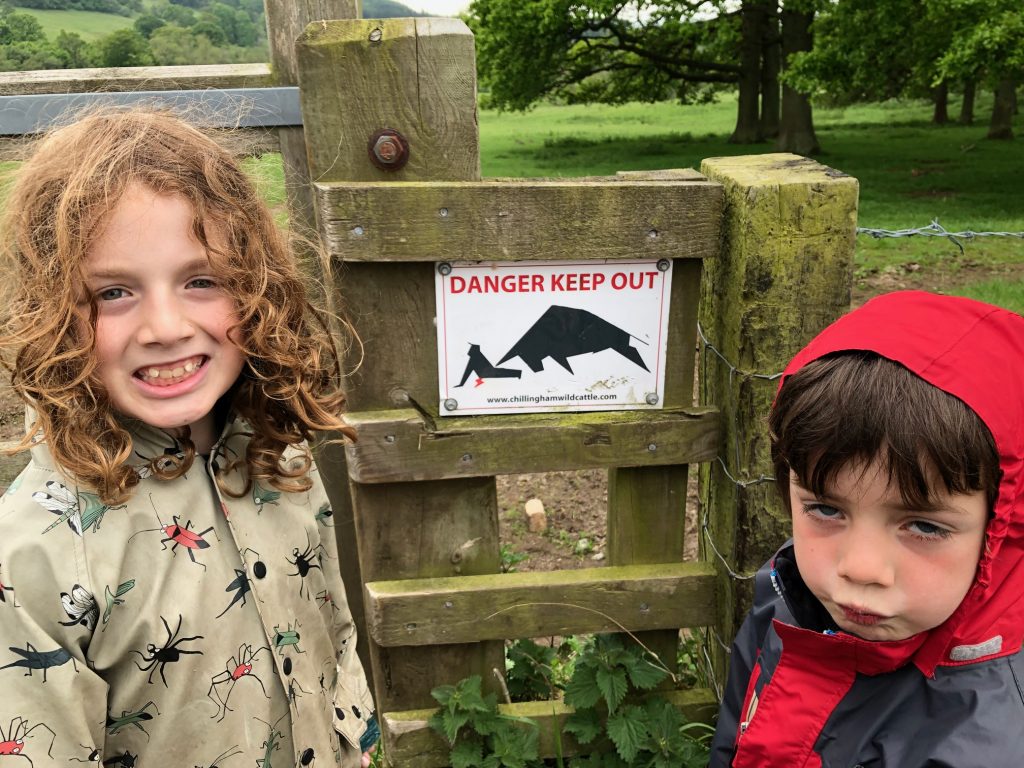Nature ain’t cuddly and neither should we be

First day back in the saddle after our traditional half-term camping trip to Wooler, Northumberland. We tried to shake up the itinerary this year – with mixed results as our planned trip to see the hordes of nesting seabirds at the Farne Islands was nixed by the weather. But we did get to visit the Chillingham Wild Cattle – more feral than wild as they were almost certainly introduced by humans, but the closest you can to the original aurochs that roamed Europe.
But what is certain is that these animals have been ‘wild’ for about 700 years and get no intervention apart from a bit of hay during bad winters and the slaughter of one or two a year to check for diseases and do other scientific analyses. The 100 or so individuals are so inbred that they are genetic clones, but for some reason have avoided the weaknesses usually associated with a lack of diversity.
The ranger who took us into the cattle park explained that harsh winters will take out the old and the weak, and they’ve never had to cull any to maintain a sustainable use of resources. Weakling calves will be rejected by the herd (legend has it if a calf is touched by humans, it will be summarily executed by the others). She pointed out that we are the only species on earth which cares for the weak and frail. Nature is red not only in tooth and claw, but attitude too.
This Darwinian brutality is always at odds with the touchy-feely nature of the environmental movement. I was once told by a vegetarian working in the field that carnivorous animals “didn’t know any better” as if the whole complex food web that sustains life on our planet was based on ignorance rather than being a robust system which has evolved over a billion years or so.
While I’m not a free-market fundamentalist, I believe we should co-opt the Darwinian nature of markets to deliver a sustainable future. So I wouldn’t tax or ration meat, I’d tax the carbon that gets embodied in that meat. Then high-carbon meat will be more expensive than low carbon food – if a farmer can produce low carbon burgers, good on them. Likewise, subsidies for renewables should be designed to open up possibilities for new technologies, but must fade away as soon as technologies mature – otherwise they won’t have to improve to compete. And the best way to make your supply chain more sustainable is to challenge the market to do better, not to try and get individual suppliers to improve.
I know this attitude makes many of my colleagues uncomfortable, but given the crisis we face, we simply don’t have time to be nice.

